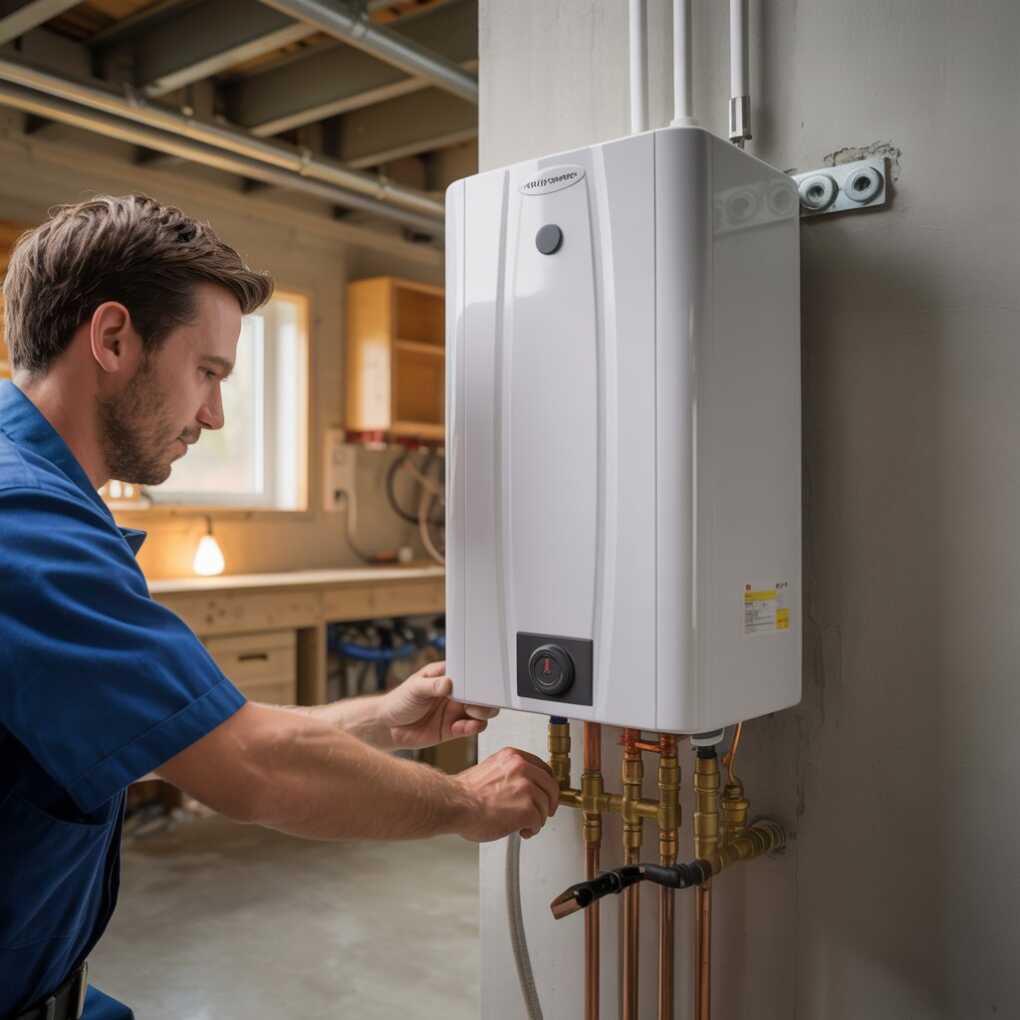If you live in Charlotte, NC, you know how essential a reliable hot water heater is — especially when the temperatures drop or when you have a busy household that relies on hot water for showers, laundry, and dishes. But like any appliance, water heaters don’t last forever. Knowing when to replace your unit and what options are available can save you money, energy, and frustration in the long run.

Signs You May Need a Hot Water Heater Replacement
Most traditional water heaters last between 8 and 12 years, depending on the model, maintenance schedule, and water quality. In the Charlotte area, hard water can shorten a unit’s lifespan due to mineral buildup. Here are some common signs it’s time for a replacement:
- Inconsistent or insufficient hot water: If your showers turn cold halfway through, your heater may be losing efficiency.
- Rusty or discolored water: Corrosion inside the tank often leads to rust in your water, a clear indicator of internal deterioration.
- Strange noises: Rumbling or popping sounds usually mean sediment has built up inside the tank.
- Leaks around the base: Even small leaks can indicate tank failure — a problem that usually cannot be repaired.
- Age of the unit: If your water heater is over 10 years old, it’s often more cost-effective to replace it rather than repair it.
Choosing the Right Replacement
When replacing your hot water heater, it’s important to choose a system that fits your household’s needs and your home’s plumbing configuration.Charlotte NC hot water heater replacement homeowners typically choose between traditional tank water heaters and tankless systems.
1. Traditional Tank Water Heaters
These are the most common and affordable options. They store a set amount of water (usually 40–80 gallons) and keep it heated at all times. Tank models are ideal for families that use large volumes of hot water simultaneously.
Pros:
- Lower upfront cost
- Straightforward installation
- Suitable for larger households
Cons:
- Higher energy use (since water is heated continuously)
- Takes up more space
- Limited supply — once the tank is empty, you must wait for it to refill and reheat
2. Tankless Water Heaters
Tankless, or on-demand, systems heat water only as it’s needed. Though the initial installation cost is higher, they can reduce energy consumption and provide an endless supply of hot water.
Pros:
- Energy-efficient (no standby heating)
- Space-saving design
- Longer lifespan — often 15–20 years
Cons:
- Higher upfront cost
- May require upgrades to gas lines or electrical systems
Why Professional Installation Matters
Replacing a water heater isn’t a DIY project. In Charlotte, NC, professional installation ensures the system is properly vented, safely connected to your home’s electrical or gas supply, and compliant with local plumbing codes. Incorrect installation can lead to leaks, poor efficiency, or even safety hazards.
Licensed plumbers in Charlotte can also help you determine the right unit size based on your household’s water usage and can recommend energy-efficient models that qualify for rebates or tax incentives.
Energy Efficiency and Rebates
The city of Charlotte and utility providers like Duke Energy occasionally offer rebates for energy-efficient upgrades, including tankless or high-efficiency tank water heaters. ENERGY STAR® certified units can reduce energy bills by up to 30%, which adds up over time.
Final Thoughts
A reliable hot water heater is essential for comfort and convenience in any Charlotte home. If your current unit is showing signs of age, leaking, or failing to deliver consistent hot water, it may be time to schedule a professional water heater replacement. Investing in a modern, energy-efficient system will provide peace of mind, lower energy bills, and dependable performance for years to come.
For homeowners in Charlotte, NC, the key is to act before your old heater fails completely — that way, you can plan your replacement on your schedule, not in the middle of a cold shower.
